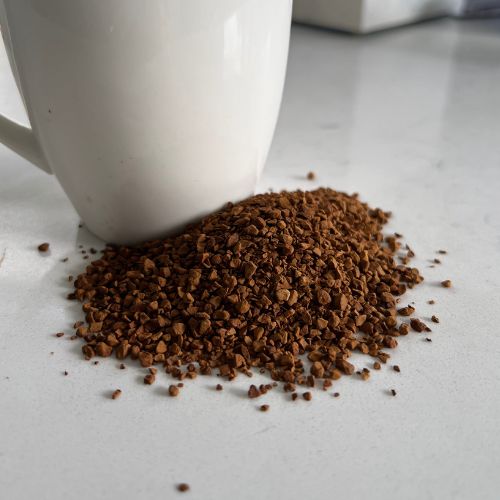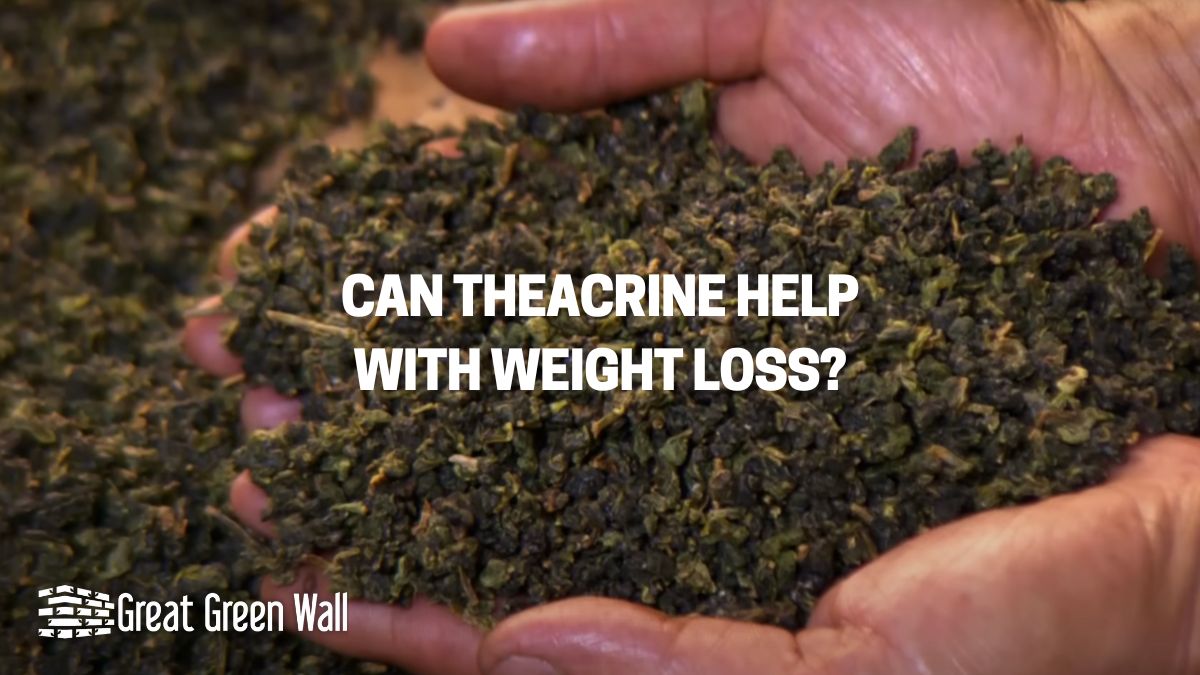I sometimes get the feeling the world of weight loss supplements is constantly pushing limits and venturing into ever newer and more unlikely compounds. This is perhaps largely driven by the race to tap into the multi-billion dollar weight loss supplement market. The rationale for manufacturers could be that if you present something novel, you are likely to get a first mover advantage.
And maybe this is what informs the growing promotion of theacrine as a weight loss aid. Its most ardent fans insist it is a fat loss accelerator. I set out to find out if this is true based on the existing scientific research. Read on to see my findings.
Highlights
What is Theacrine?
Theacrine is a naturally occurring compound found in various plants, including Camellia assamica (a type of wild tea plant also known as the kucha tea plant) and Cupuacu (a tropical fruit). It is also found in small amounts in some other plants, such as cocoa and guarana.
It is structurally similar to caffeine and shares some of its stimulant properties but it is thought to be longer-lasting and less likely to cause the jitters, anxiety and energy crashes that caffeine is infamous for. Theacrine is believed to increase energy, enhance alertness, improve focus, reduce fatigue and lift mood.

In the world of health supplements, theacrine may be best known for its cognitive benefits. A number of supplement makers and fitness influencers claim that it may also support weight loss. This is based on a belief that it can boost metabolism, suppress appetite, and enhance fat burning. I examined the available scientific evidence to test the veracity of these assertions.
Studies on Theacrine and Weight Loss
You would not be too off the mark to assume that theacrine’s emergence as a weight loss aid is largely due to the attributes it shares with caffeine. Nevertheless, we cannot make that assumption. Let’s find out what studies say. Word of caution – there are very few studies on theacrine and weight loss.
Energy
Just like caffeine, it would appear energy is supposed to be the primary selling point of theacrine’s role as a weight loss accelerator. One of the most insightful studies on theacrine’s impact in this regard was published in 2022.

15 healthy subjects were placed on a placebo 100 mg, 200 mg or 400 mg theacrine supplementation then assessed seven days later. Researchers found theacrine was accompanied by an increase in energy, exercise motivation, reduction in fatigue and improved focus. The best results occurred at a daily dosage of 200 mg.
Nevertheless, this was a small study and one whose findings I would be cautious about running with. And I’m going to show you why.
Like Caffeine But Not Like Caffeine
Research published in 2019 looked at the effect on resistance exercise performance among 12 trained and fit men. Subjects took caffeine, theacrine, theacrine-caffeine combo, or a placebo. Only the caffeine group showed significant increases in exercise energy, focus, and motivation. Theacrine displayed no effect on these measures.

Admittedly, this too was a small study. But the findings seemed consistent with a larger study published in 2016 that concluded 200-300 mg theacrine supplementation had no impact on energy, focus and exercise motivation.
Better with Caffeine?
Outcomes may be different when theacrine is used in combination with caffeine as a 2015 study showed. It would appear theacrine accentuates the energy and mood-enhancing effect of caffeine. Incidentally, when theacrine is used in health supplements, it is usually in combination with caffeine.
Overall, the current scientific evidence on the effects of theacrine on weight loss is limited and inconclusive.
Safety
Theacrine may be a milder stimulant than caffeine but that does not mean it is devoid of side effects especially when taken in high dosages. Some individuals may experience mild stomach cramps, nausea, diarrhea, irritability, restlessness, or difficulty sleeping.
Based on existing studies, the optimal dosage for weight loss is 100 to 300 mg per day though research has found no adverse effects for doses as high as 400 mg.
Conclusion
Theacrine has stormed into the weightloss world largely riding on the coattails of caffeine. Proponents promised all of caffeine’s health benefits with none of the downsides. But as the research shows, theacrine does not necessarily share the multi-faceted benefits to weight loss that caffeine does.
It does seem to be beneficial to weight management only when used in combination with caffeine and not on its own. For this reason, I would say theacrine has a marginal benefit for weight management. It’s not a compound you can pin your hopes on in the fight against excess weight.

